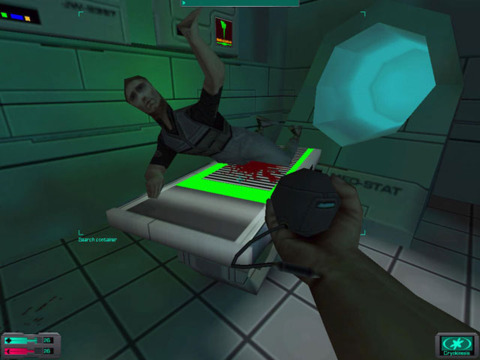It's the twist that none of us saw coming. After basking in critical and commercial success for nearly two decades, Irrational Games days are now winding down. Ken Levine, one of the three men who founded the studio, announced that he would be forming a new team with a select number of people from Irrational, and the rights of the BioShock franchise would go to Take-Two Interactive. Not only have many talented creators lost their jobs, but the closure impacts the industry at large, in both good and bad ways.
Bad News: One Less Artistically Minded Developer

Irrational Games was one of the few large development studios whose emphasis was on creating challenging artistic experiences. The conversations about BioShock Infinite were markedly different from how most games are analyzed. We wrestled with the dialogue of Elizabeth, the actions of Booker, and the depiction of this dystopian society as we strove to articulate why we had such a strong emotional reaction to this provocative adventure. That my feelings were more negative than others doesn't change how I felt about Irrational Games. Levine's team incited such passion because it wasn't scared of tackling difficult topics, and such a design philosophy stands out amid a sea of homogenization.
With Irrational Games no longer around, the big-budget space has become a lot less interesting than it was yesterday. There are still studios such as Naughty Dog that make us confront our own beliefs in ways that are often uncomfortable, but such endeavors are few and far between. Thankfully, for those who want emotionally difficult experiences, there are still plenty of independent games that fit that model. But one less AAA team working on subversive games lessens the visibility of this industry's cultural importance to the world at large.
Good News: Vision Without Restraint

Ken Levine is an auteur whose expertise is examining the fall of dystopian societies. I cherished having someone with such lofty artistic ambitions in the AAA scene, and can only wonder how demanding expectations could curb one's creative output. It's no secret that the most high-profile games often come with inflated budgets, and those who are opening their pocketbooks certainly want ample return on their investments. Even someone who wants nothing more than to push us to think differently about the world we inhabit still has to find a way to make the average person interested in such a game. And that's why I believe Levine's departure could be good for his upcoming projects.
I have no idea how closely the finished versions of BioShock and Infinite mirror Levine's original vision, and trying to guess their potential metamorphosis is futile. But I do believe Levine will have less pressure to appeal to as many people as possible with whatever he's working on next. And if Levine is freer to realize his dreams, that could only be a good thing for those who want to see what ideas he has stirring in his head.
Bad News: Another Strike Against AAA

In Ken Levine's official statement, he made no references to financial difficulties facing Irrational Games. And if we look at the sales numbers for Infinite, it would be hard to imagine that he was forced to abandon the studio he founded because it was no longer solvent. By all accounts, Irrational Games was successful, which is one of the reasons the news that hit today was so stunning. After all, no one could have predicted its closure even one week ago. Why would a development studio suddenly close its doors after receiving so much praise and commercial success over the last year?
This is where the bad news comes in. I believe that the AAA space is so stifling, so demanding, and so merciless that even the biggest studios have to reevaluate their immediate plans. Considering how expensive games are to make, and how long development cycles are, one flop could mean the end of a once-proud studio. That's a terrifying business model, and one that I do not think is sustainable for the long-term health of the industry. And that's why you'll see many more studios follow Irrational Games' path as the financial pressures become too great. For those who love big-budget games, this is very sad news indeed, as our options will dwindle with each passing year.
Good News: Publishers Adopt a New Philosophy

But there are plenty of games that exist outside of the AAA space, and they are only going to grow stronger and more influential. What's so important about Levine's decision is where his future employment lies. Even though Irrational Games is being dissolved, Levine's new studio will still be owned by Take-Two Interactive. The biggest publishers aren't going to fade into irrelevance even if the biggest games lose their stronghold on the industry, and we're seeing that transition in this situation. Take-Two is still funding Levine's projects, which means both the artistic and business sides are being helped by this relationship.
Having smaller, cheaper games pad out a publisher's catalog is a wise business venture. We're seeing Ubisoft do this with Child of Light and Sony with modest projects such as Rain. Diversifying your interests is the key toward long-term success, and the redistribution of money could be great for every person who loves this industry. As players, we'll get a wider variety of games, creators will have more flexibility, and publishers will lessen their risks. I expect more developers to take this route, and more publishers to sign contracts with them that are beneficial to everyone rather than let them be completely independent.